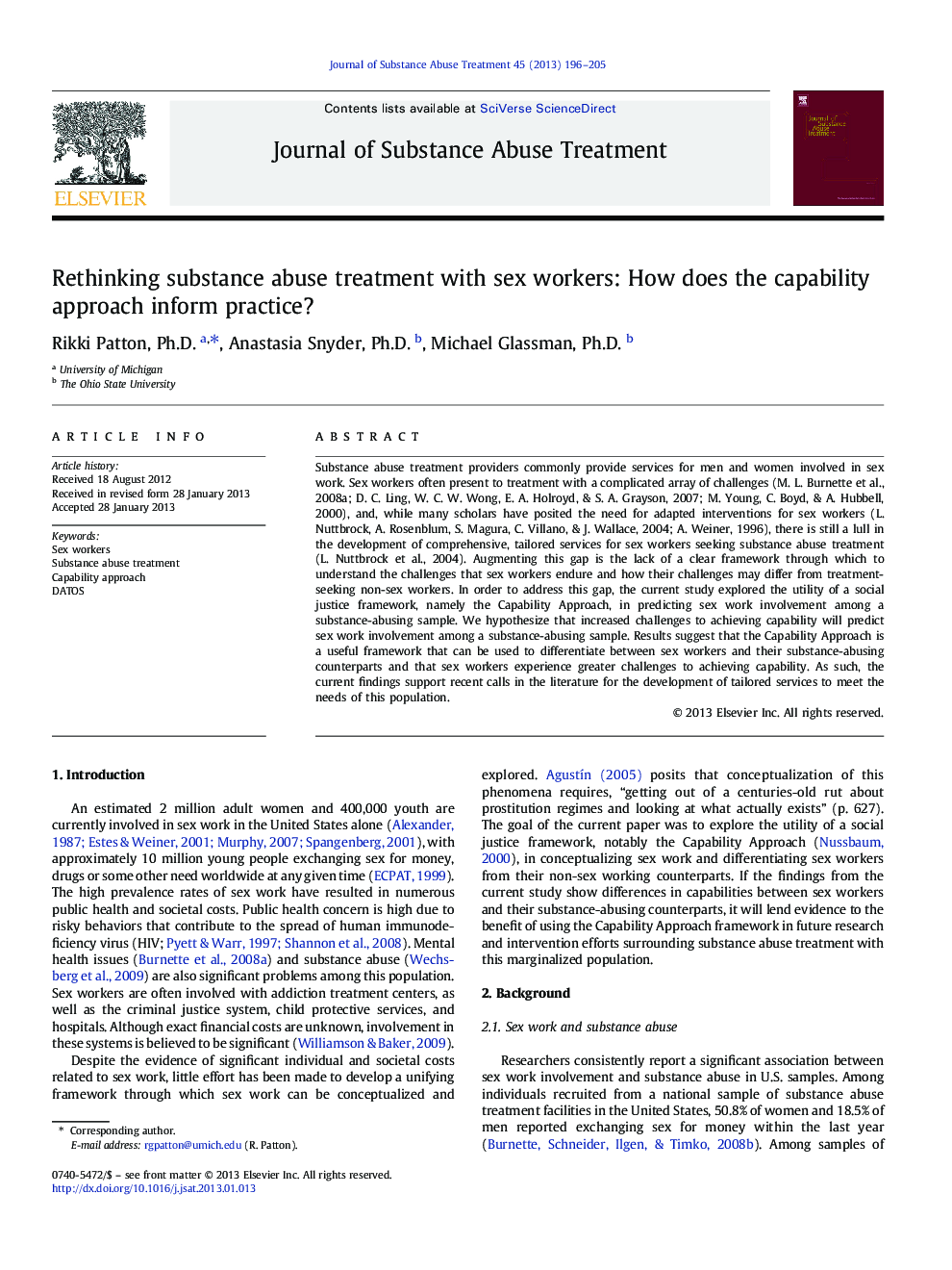| Article ID | Journal | Published Year | Pages | File Type |
|---|---|---|---|---|
| 328432 | Journal of Substance Abuse Treatment | 2013 | 10 Pages |
Substance abuse treatment providers commonly provide services for men and women involved in sex work. Sex workers often present to treatment with a complicated array of challenges (M. L. Burnette et al., 2008a; D. C. Ling, W. C. W. Wong, E. A. Holroyd, & S. A. Grayson, 2007; M. Young, C. Boyd, & A. Hubbell, 2000), and, while many scholars have posited the need for adapted interventions for sex workers (L. Nuttbrock, A. Rosenblum, S. Magura, C. Villano, & J. Wallace, 2004; A. Weiner, 1996), there is still a lull in the development of comprehensive, tailored services for sex workers seeking substance abuse treatment (L. Nuttbrock et al., 2004). Augmenting this gap is the lack of a clear framework through which to understand the challenges that sex workers endure and how their challenges may differ from treatment-seeking non-sex workers. In order to address this gap, the current study explored the utility of a social justice framework, namely the Capability Approach, in predicting sex work involvement among a substance-abusing sample. We hypothesize that increased challenges to achieving capability will predict sex work involvement among a substance-abusing sample. Results suggest that the Capability Approach is a useful framework that can be used to differentiate between sex workers and their substance-abusing counterparts and that sex workers experience greater challenges to achieving capability. As such, the current findings support recent calls in the literature for the development of tailored services to meet the needs of this population.
